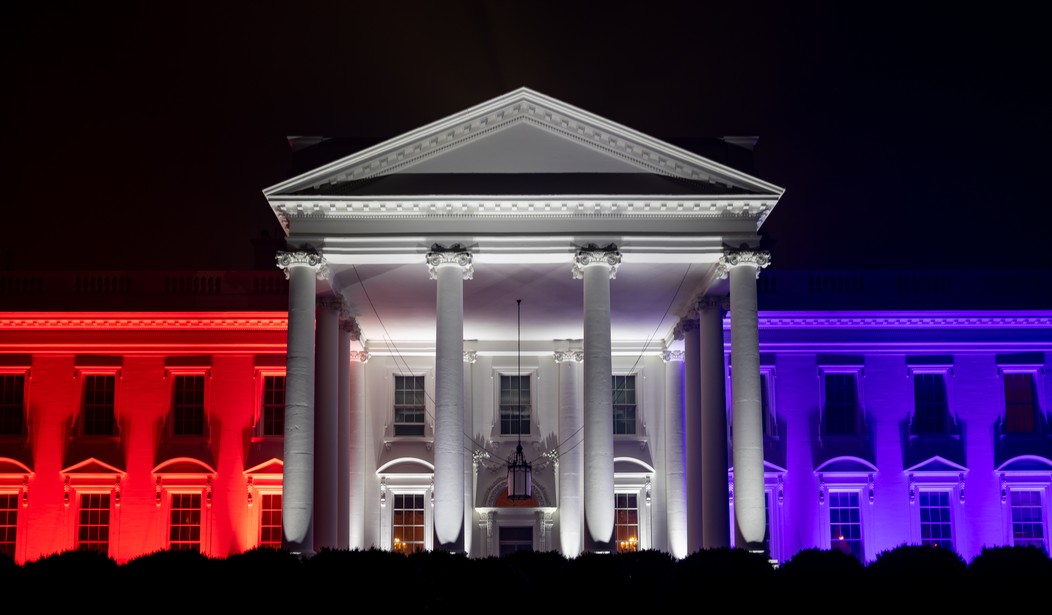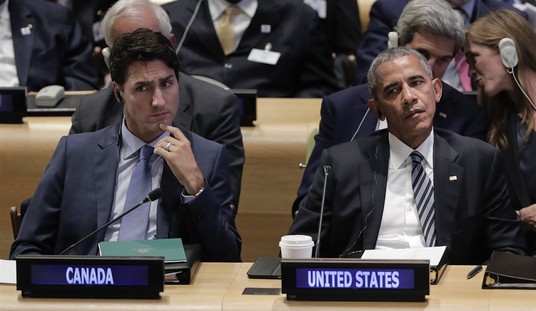The suspense builds as the November 2020 election nears, with some on both sides expecting a decisive resolution to the political crisis that first became obvious with the disputed Florida recount of 2000. “Though Gore came in second in the electoral vote, he received 547,398 more popular votes than Bush, making him the first person since Grover Cleveland in 1888 to win the popular vote but lose in the Electoral College.” Ever since then, the U.S. has had a string of not-quite-acceptable presidents and two increasingly divergent narratives. Everyone wants to know how the showdown ends.
Over those 20 years, the correlation of forces has changed. In most big things the progressive agenda has been pushed back, gradually by the populist revolt of 2016, then more rapidly by the coronavirus pandemic. The ‘Davos’ brand of globalization has become too risky to continue unmodified. Supply chains have demonstrated extreme vulnerability. Cities, with their high-rise offices and mass transportation, have become unhealthy places to work in a pandemic. International travel is a pale shadow of its former self. The borderless world the elites strove to build has proved unsustainably fragile.
behind the soothing stories about the benefits of the global marketplace, globalization was quietly becoming more fragile and riddled with vulnerabilities. In some sectors, suppliers had become concentrated in geographically dense clusters, while in others the demand for efficiency drove companies to rely on just one supplier that could provide a necessary component. Apparent flexibility disguised the development of new rigidities.
Yet while the progressives were losing the outside they were winning big on the inside, within institutions. They were dominating the “new rigidities.” Liberals in media and higher education outnumbered conservatives at ratios upwards of four to one. Even the bureaucracy and corporate boardroom the liberals dominated what has been called the Deep State, an unelected structure “made up of networks of power operating independently of a state’s political leadership in pursuit of their own agenda and goals.”
Orwellian Marxists Claim Free Speech Letter Is an Attempt to Silence Minorities
They balanced the loss in one with a gain in the other enabling the progressive cause to effectively employ online shaming tactics, otherwise known as “cancel culture,” to maintain its agenda. But this is unlikely to be decisive in the long term. The COVID-19 pandemic resembles a bigger version of the European potato failure which changed demography, altered political relations, and spurred European revolutions in the mid 19th century. Natural disasters not only cause their own devastation they accelerate underlying trends. After the potato famine, the Irish ruling elite was never the same again but that was the least of it. The subsistence failure of 1845 led to 1848, known as “the year of revolutions.”
The November election will likely not be a period but a comma. The old “normal” is not coming back. There will no sudden awakening to an alternative universe where Hillary won the 2016 election nor will it result in a “final defeat” of the progressive project with all the Marxism of the last century repealed.
Rather, what started 20 years ago might continue for decades more until a new normal is reached: a renegotiated consensus on what governance should be; whether a mechanism designed to redistribute power, resources, and legitimacy to preferred constituencies or an enabling network that will allow everyone to pursue truth and happiness; whether the Blue or the Red prevails or something in between.
History suggests that almost nobody correctly anticipates how long a faceoff between two contending historical forces will last. It can continue for far longer than politicians imagine. The Revolutions of 1848 following the potato failure “remains the most widespread revolutionary wave in European history,” something Charles Trevelyan could not have foreseen.
Significant lasting reforms included the abolition of serfdom in Austria and Hungary, the end of absolute monarchy in Denmark, and the introduction of representative democracy in the Netherlands. The revolutions were most important in France, the Netherlands, Italy, the Austrian Empire, and the states of the German Confederation that would make up the German Empire in the late 19th and early 20th century.
The American Civil War, as Abraham Lincoln retrospectively pointed out in his second inaugural, proved bigger and lasted longer than anyone at the outset conceived.
Fondly do we hope, fervently do we pray, that this mighty scourge of war may speedily pass away. Yet, if God wills that it continue until all the wealth piled by the bondsman’s two hundred and fifty years of unrequited toil shall be sunk, and until every drop of blood drawn with the lash shall be paid by another drawn with the sword, as was said three thousand years ago, so still it must be said “the judgments of the Lord are true and righteous altogether.”
In the last century, German soldiers in the Great War were promised by the Kaiser as they marched off in August 1914, “you will be home before the leaves fall from the trees.” It would be more than four years before the survivors returned to a devastated country. Even that greatest of all modern conflicts, World War II, began as a comparatively narrow European war initially involving only Poland.
I am speaking to you from the Cabinet Room at 10, Downing Street.
This morning the British Ambassador in Berlin handed the German Government a final Note stating that unless we heard from them by 11 o’clock that they were prepared at once to withdraw their troops from Poland a state of war would exist between us. I have to tell you now that no such undertaking has been received, and that consequently this country is at war with Germany.
By 1941, the conflict had become global. What fuels expansion is the transformation of specific grievances into questions of principle. A relatively simple dispute eventually becomes a cause by a process of abstraction.
tangible issues may become embedded within a larger set of values, beliefs, identities, and cultures. Disputes about land, money, or other resources may take on increased symbolic significance. Over the course of conflict, the original issues can even become irrelevant as new causes for conflict are generated by actions within the conflict itself. Those on opposing sides come to view each other as enemies and may resort to highly destructive means. Eventually, the parties become unable to separate different issues and may see no way out of the conflict other than through total victory or defeat.
Thus did the revolt against King George III became a new model of government. The problem of slavery gave birth to notions of the equality of man. The 1939 war against Poland expanded into a crusade against state tyranny. The petty disputes of our own time are destined to unfold into the great questions of the future. We just don’t know what they’ll be yet.
Follow Wretchard on Twitter or visit Wretchard.com
Editor’s Note: Want to support PJ Media so we can keep telling the truth about China and the virus they unleashed on the world? Join PJ Media VIP and use the promo code WUHAN to get 25% off your VIP membership.
‘This Is No House of God!’ Black Lives Matter Activists Yell as They Harass Church in Upstate NY
Did Nancy Pelosi Just Condone Mob Rule?
Support the Belmont Club by purchasing from Amazon through the links below.
Books:
The Case for Christ: A Journalist’s Personal Investigation of the Evidence for Jesus, by Lee Strobel. Is there credible evidence that Jesus of Nazareth really is the Son of God? Former atheist and Chicago Tribune journalist Strobel takes an investigative look at the evidence from the fields of science, philosophy, and history.
Lincoln at Gettysburg: The Words that Remade America, by Garry Wills. By examining both the address and Lincoln in their historical moment and cultural frame, Wills breathes new life into Lincoln’s words and reveals much about a president so mythologized but often misunderstood. He shows how Lincoln came to change the world, how his words had to and did complete the work of the guns, and how Lincoln wove a spell that has not yet been broken.
The Madness of Crowds: Gender, Race and Identity, by Douglas Murray. The book examines the twenty-first century’s most divisive issues: sexuality, gender, technology and race, and reveals the astonishing new culture wars playing out in our workplaces, universities, schools and homes in the names of social justice, identity politics and ‘intersectionality’.
For a list of books most frequently purchased by readers, visit my homepage.
Did you know that you can purchase some of these books and pamphlets by Richard Fernandez and share them with your friends? They will receive a link in their email and it will automatically give them access to a Kindle reader on their smartphone, computer or even as a web-readable document.
Open Curtains by George Spix and Richard Fernandez. Technology represents both unlimited promise and menace. Which transpires depends on whether people can claim ownership over their knowledge or whether human informational capital continues to suffer the Tragedy of the Commons.
The War of the Words, Understanding the crisis of the early 21st century in terms of information corruption in the financial, security and political spheres
Rebranding Christianity, or why the truth shall make you free
The Three Conjectures, reflections on terrorism and the nuclear age
Storming the Castle, why government should get small
No Way In at Amazon Kindle. Fiction. A flight into peril, flashbacks to underground action.
Storm Over the South China Sea, how China is restarting history in the Pacific.









Join the conversation as a VIP Member